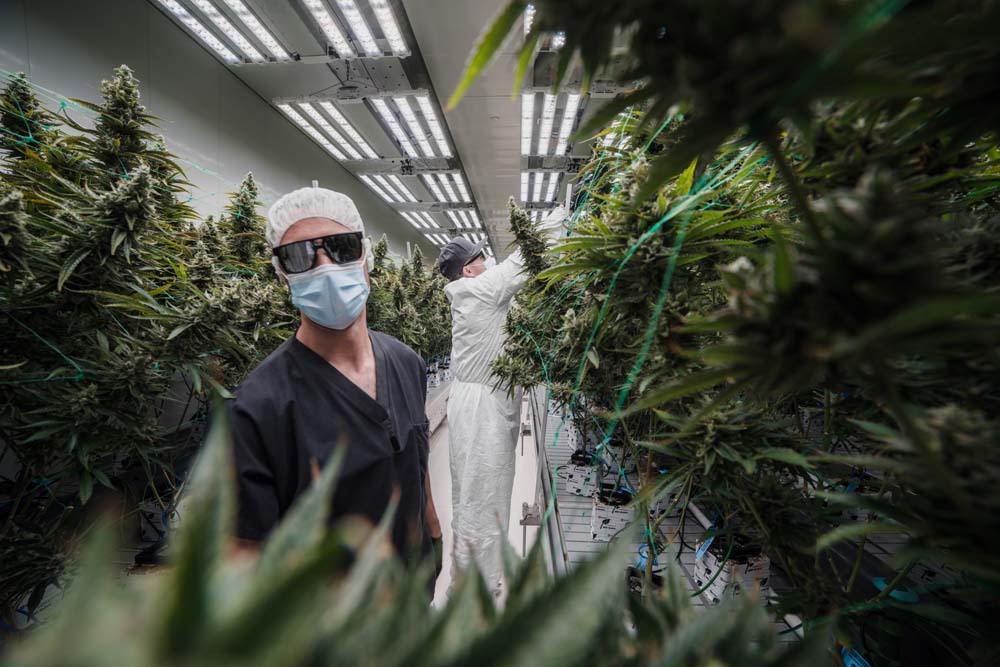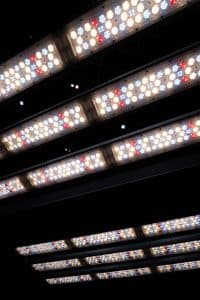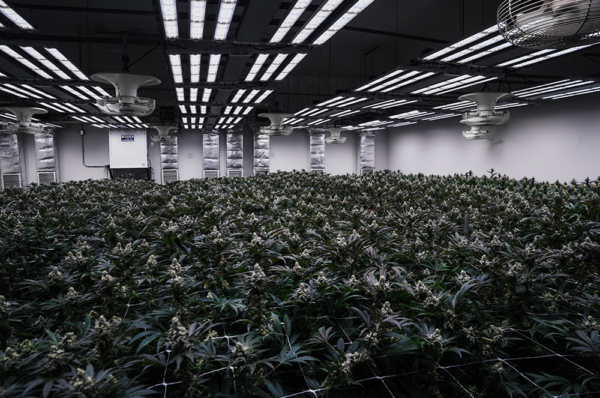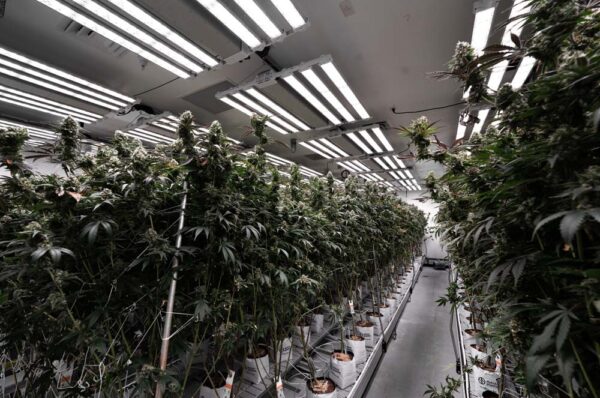
In 1868, Russian botanist Andrei Famintsyn was the first to use HID lights to research and grow produce indoors. His discovery set the standard for indoor horticulture for the next century.
Today, thousands of commercial cannabis operations and home growers grow millions of dollars in product under the same kind of HID lights. Until recently, LED lights failed cannabis cultivators due to low output and poor canopy penetration. New technology has since put LED lights back on the cultivation map. Operators who transition to the right LED lighting systems will see a higher yield, financial savings, superior output, and unrivaled efficiency.
Here are 6 reasons the right LED lighting systems crush HID lights every day of the week.
Reason #1: Stronger PAR Levels To The Canopy
LED lights result in stronger Photosynthetic Active Radiation (PAR) levels at the canopy at the same wattage as an HID system. PAR is the amount of usable light for plants during photosynthesis. Some experts call photosynthesis the most important biological process on earth.
The right LED lights for plants have several diodes that produce different colors of photons without moving the plant or changing the bulbs. Metal halides and HID lights produce a spectrum that wasn’t necessarily geared towards cannabis plants.
Reason #2: Unrivaled Energy Efficiency
HID lights produce infrared heat spikes that increases the room’s ambient temperature and makes lights hot to the touch. LEDs don’t have this infrared heat spike, so they operate much cooler than HID systems due to heat sink technology. When the diodes are kept cool, energy is used more efficiently.
It also takes less time for LED lights to warm up, so they spend more time operating at their maximum output. LEDs don’t require power boxes and separate cooling systems. With the energy saved, LEDs spend their energy providing usable light to the canopy and not adding extra heat to the grow space.
Discover how utilizing Fohse LEDs helped NorCal Cannabis become one of the most efficient indoor cultivation facilities in the world:
Reason #3: Longer Life Span
An efficient grow light has an extended life-time. Where some lights shut down after dropping below a certain output, FOHSE’s LED lights dim and continue to operate with less energy while still delivering high PPF levels.
This increases the lighting fixture’s lifetime, providing years of use from one fixture with no replacements.
Reason #4: More Control
HID lights have limited spectral options, but LED lights can be programmed to emit different spectrums of light by season. A flower room would benefit from having an end-of-summer and fall light spectrum while vegetative plants do well in spring or summertime light spectrums as this is what naturally occurs outdoors where cannabis originally existed.

The FOHSE touch screen control system comes with spring, summer and fall spectral options to cater to the unique needs of the plant throughout its life. It also features sunrise and sunset functionality and the ability to customize schedules.
Reason #5: Less Maintenance
HID systems are complicated and usually include multiple parts like:
- Cooling units
- Hoods
- Separate lenses
LED grow lights are user-friendly. It is simple to hang and operate LEDs because they require less external parts and are self-contained. FOHSE LED grow lights hang from an easy-to-install hook. The lights can be daisy-chained to each other and into our touchscreen control center.
FOHSE’s lights don’t require parts other than a hook, cord, and controls. You just hang it and plug it in.
Reason #6: Higher Yields
Scientists are currently evaluating where the threshold for light intensity is in cannabis. While certain cultivars will be limited to lower light levels, others thrive under high intensity so long as the facility maintains balance with the other growing parameters. One study has shown that there is a direct correlation between PPFD increases and increased yield and quality in certain varieties of cannabis through 1800 PPFD. HID bulbs are limited to a low PPFD output at the canopy. This means the potential of yield and potency of secondary metabolites can be greatly stunted in many varieties of cannabis under these fixtures.
Mike Howard, former director of cultivation at The Grove, made the switch from HPS and hasn’t looked back. Yields grew while energy consumption fell sharply.
“Using 16% less energy [than HPS], the system generated 27% more light and increased our yields by 65%,” Mike said.
In Conclusion
An LED upgrade can lower cost and energy consumption while optimizing plant growth and increasing crop yields.




